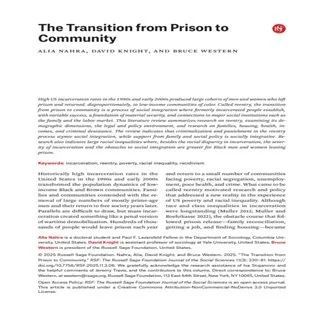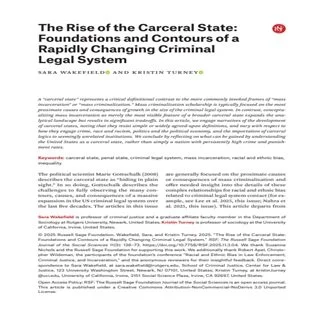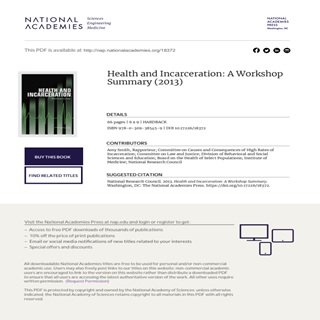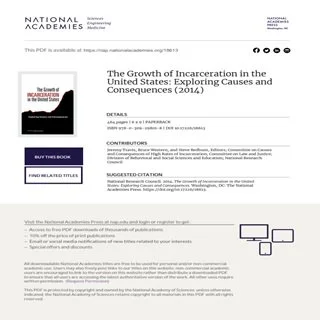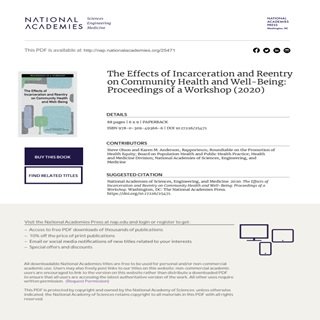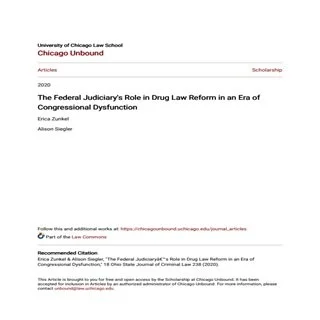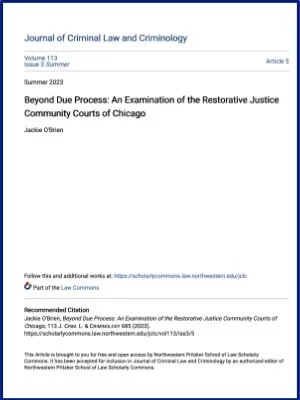By Tasseli McKay and William A. “Sandy” Darity Jr.
Social scientists continue to declare that mass incarceration, a defining social force of the last half century, is on its way out. Lifetime risks of imprisonment are indeed in decline, as are absolute and relative imprisonment risks for Black Americans. But whether we consider mass incarceration to be over, or even on its way out, depends a great deal on what we believe mass incarceration is and what it does.
Scholarship on the “collateral consequences” of mass incarceration, leaving concerns with political etiology to political scientists, is curiously absent a broader concept of how such consequences function. Even as the field rigorously documents the vast social, political, economic, and health fallout of mass incarceration, it remains largely agnostic on a central theoretical concern: Do we conceive of mass incarceration as a policy mistake with negative consequences for us all, or as a well-running engine of racial stratification that has enriched some Americans at others' expense? How we answer this question, or do not, has tremendous implications for how we study the harms of mass incarceration and what policy moves we deem capable of confronting it.
Scholarship on mass incarceration's consequences is often introduced with reference to racial inequality. Such scholarship has identified an array of mechanisms by which mass incarceration appears to contribute to racial stratification, particularly through a longstanding line of inquiry on the disproportionate impact of incarceration-related constraints on Black men's workforce participation, income, and wealth. Yet most such research frames these phenomena as an unfortunate artifact of racially disproportionate criminal legal system contact, rather than situatingthe impetus and functioning of the criminal legal system within a broader theory of structural racial inequality.
Critiquing the failure to engage questions of structural racism in empirical research on mass incarceration's consequences, two of the field's preeminent scholars argue,
While most studies that explore the consequences of mass incarceration for American families are motivated by racial inequality within the carceral system--rightfully so, given the massive racial disparities in incarceration rates and criminal justice involvement--the work often fails to engage this important issue in meaningful ways .... We neither interrogate why we see racial disparities in mass incarceration nor do we investigate why we might see racial disparities in outcomes due to mass incarceration.
Indeed, with important exceptions, collateral consequences research inventories the implications of mass punishment for individuals, neighborhoods, and nations rather than examining how a racially targeted punishment system functions within a broader set of national and subnational institutions that systematically privilege whiteness. Further, the possibility that mass incarceration produces systematic benefits, in addition to or even as an impetus for its systematic harms, receives very limited scholarly attention. Such research, if it aims to confront racial injustice, must “move beyond description of racial inequality [and] think critically about how our society's raced institutions interact with one another to stratify the experiences of American families”.
Toward that end, the current review applies the theory of stratification economics to consider whether and how the broad criminalization and intensive punishment of Black Americans have advanced or advantaged their White contemporaries. First, the review briefly revisits key theoretical perspectives on the consequences of mass incarceration and proposes stratification economics as a meta-theoretical framework for understanding the production and functioning of those consequences. Next, it applies stratification economics to available social scientific evidence on the consequences of mass incarceration, analyzing the implications of that evidence for the relative standing of White Americans. Finally, the review advances an agenda for future research and policy capable of confronting and redressing the ill-gotten gains of mass incarceration.
20 Annual Review of Law and Social Science 309 (2024), 22p.


